 Petzlover
Petzlover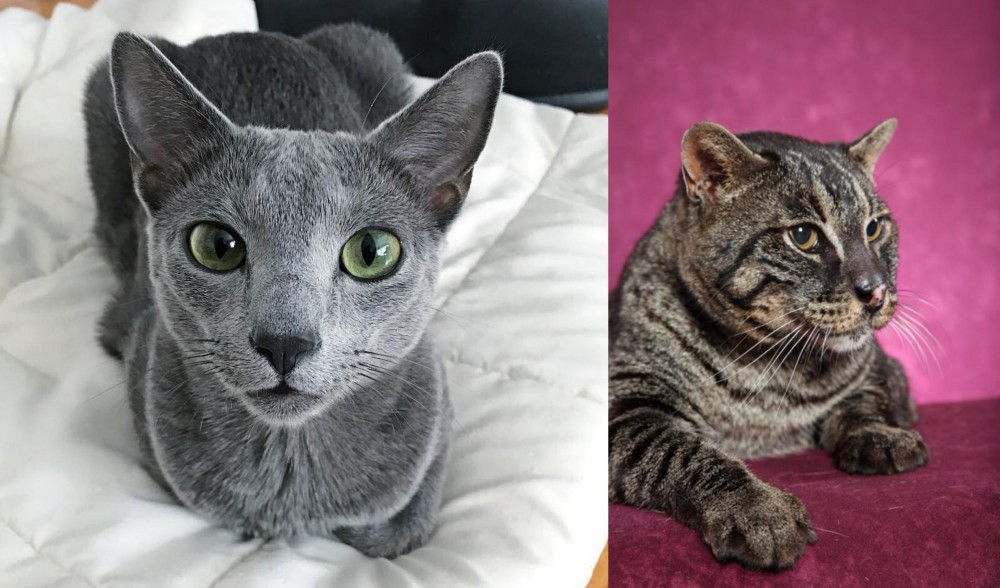 Blue Russian is originated from Russia but Machbagral is originated from United States. Both Blue Russian and Machbagral are having almost same weight. Blue Russian may live 5 years more than Machbagral. Both Blue Russian and Machbagral has same litter size. Both Blue Russian and Machbagral requires Low Maintenance.
Blue Russian is originated from Russia but Machbagral is originated from United States. Both Blue Russian and Machbagral are having almost same weight. Blue Russian may live 5 years more than Machbagral. Both Blue Russian and Machbagral has same litter size. Both Blue Russian and Machbagral requires Low Maintenance.
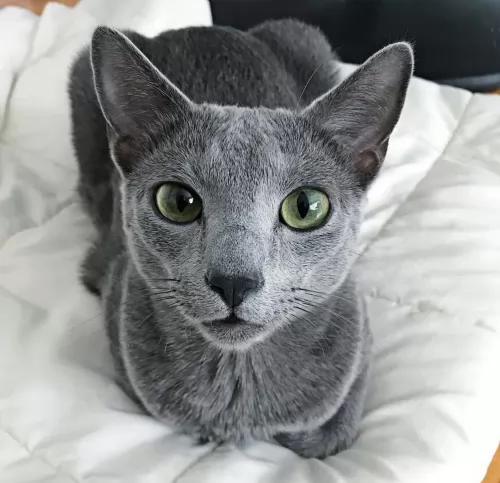 The Blue Russian is a rare cat and not much is known about its origins, but it is believed that the cat comes from northern Russia.
The Blue Russian is a rare cat and not much is known about its origins, but it is believed that the cat comes from northern Russia.
The Cat Fanciers Association believes that the cat descended from cats kept by Russian Czars. Research tells us that there is no mention of the Blue Russian until the 19th century. The Russia Blue made its first public appearance in 1875, being exhibited at London’s Crystal Palace as the ‘Archangel Cat’.
By 1912, the Russia Bue was given its own classification after its introduction to the USA in the early 1900s.
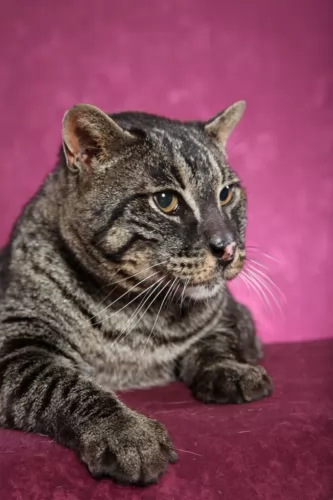 This is an experimental cat breed – a wildcat hybrid. It seems as though this cat was also developed in the United States like many of the other hybrid cats.
This is an experimental cat breed – a wildcat hybrid. It seems as though this cat was also developed in the United States like many of the other hybrid cats.
Also known as Bagral, Tthe Machbagral came about by crossing the wild Fishing cat – also known as the Asian Fishing cat and a Bengal cat or melanistic tabby spotted domestic cat.
Once again, humans wanted a cat that would look like a wild cat but that could be domesticated.
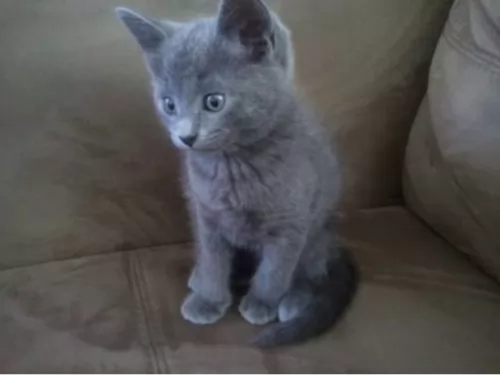 The Russian Blue is a medium-sized cat with a long, finely-boned boy. It is a slender cat, but he appears larger because of his dense double coat.
The Russian Blue is a medium-sized cat with a long, finely-boned boy. It is a slender cat, but he appears larger because of his dense double coat.
He weighs in the region of 3 – 6kg. In spite of the dense and luxurious short silvery coat, the cat doesn’t shed much. The coat can in fact be a silvery shade to a dark slate grey. The eyes are a beautiful green, the ears widely spaced and slightly rounded at the top.
The Russian Blue is a sweet-tempered cat who becomes attached to his human owner and who will even follow his owner much like a dog.
This particular cat breed may be quite shy, but he becomes social around his family members and may even be reluctant to share time with strangers.
He also doesn’t mind spending some time alone if you have to work. Curious and intelligent the Russian Blue is somewhat reserved but he makes a great companion as he is sensitive to his owner's moods.
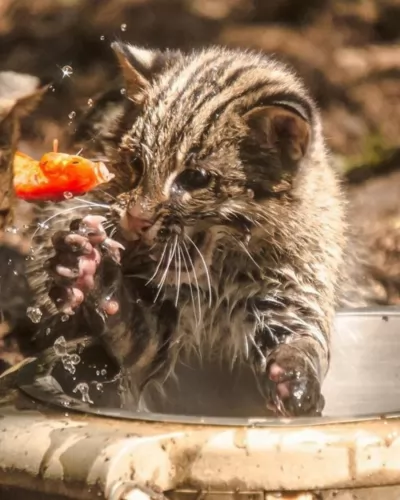 The Machbaral is a medium to large-sized cat and can weigh up to 7kg. It is described as a stocky cat. The head is large with fairly small ears. The fur of the Machbagral will be dense and medium length with a thick fluffy tail. The color is black with lighter tips.
The Machbaral is a medium to large-sized cat and can weigh up to 7kg. It is described as a stocky cat. The head is large with fairly small ears. The fur of the Machbagral will be dense and medium length with a thick fluffy tail. The color is black with lighter tips.
The Machbagral cat is very friendly and intelligent and like so many hybrid cats he loves playing in water. If you have an outside cage for him, it should have a small pool.
He is a cat that loves his human family and behaves much like a dog. You can teach this cat to walk on a leash.
You need to bear in mind that because of the wildness in the Machbagral, there will no doubt be some aggression. They can also be quite solitary by nature and may never adjust to being in a social setting. These cats are also not 100% predictable.
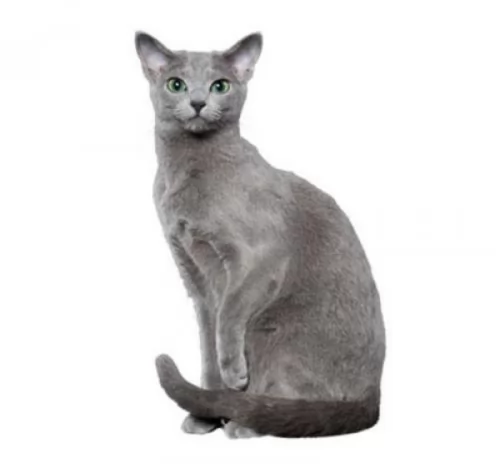 Russian blue cats are such intelligent creatures and he will require some mental stimulation because of it.
Russian blue cats are such intelligent creatures and he will require some mental stimulation because of it.
He loves mealtimes, but remember to not overfeed him as this shortens his lifespan.
He is a vocal cat and will tell you when he is hungry or he wants to play.
These cats don’t like too many changes so keep things the same for him.
When you try to keep your lovely Blue Russian happy, you’ll be rewarded by having a fantastic feline companion.
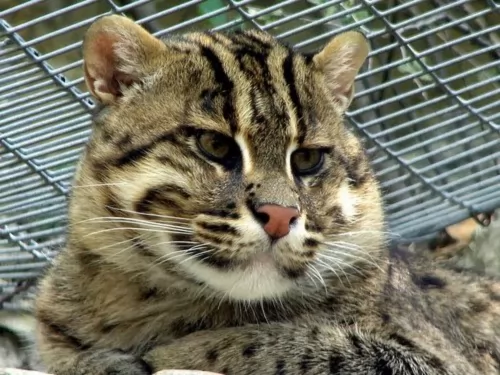 The Machbagral, just like some of the other hybrid cats there are, can be wonderful to own. But sadly these hybrids should be discouraged as pets.
The Machbagral, just like some of the other hybrid cats there are, can be wonderful to own. But sadly these hybrids should be discouraged as pets.
They can make wonderful pets no doubt, but there is always that unpredictable behavior with them.
There are so many cats in shelters today, many of them are hybrids because people had no idea that the wild side of the hybrid such as the Machbagral is always lurking there, ready to come out.
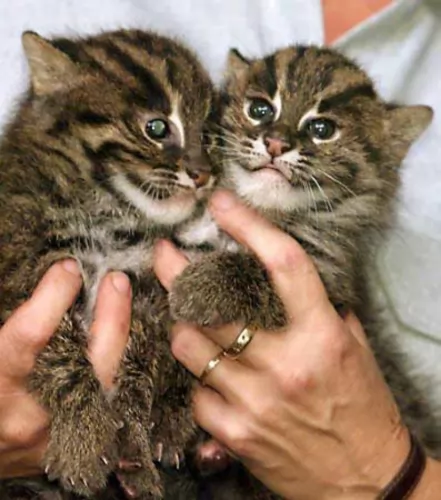 You need to know that interbreeding wild cats with domestic cats still has wildness in a cat.
You need to know that interbreeding wild cats with domestic cats still has wildness in a cat.
The truth is, there are behavioral complaints from owners of these hybrid cats.
No matter how wonderful the Machbagral seems to be as a pet, at some time or other he will display aggression and also failure to use a litter box.
These hybrids usually mark their territory by urination and spraying and often can’t learn to use a litter box. Unlike with a proper domestic cat, neutering or spaying a hybrid cat won’t really change their behavior of urinating inside your house.
Also, because hybrid cats such as the Machbagral are unnatural breeding, there can be health issues. One of the more common illnesses among hybrid cats include digestive issues, of which IBD is one. This is a bowel disease and it can cause chronic diarrhea with your cat.
Another medical issue is Hypertrophic Cardiomyopathy. Also, another concern is that while regular cat vaccines protect your regular cat from some deadly cat diseases, they may not be approved for use in hybrid cats, and if they are approved, they may not be effective.
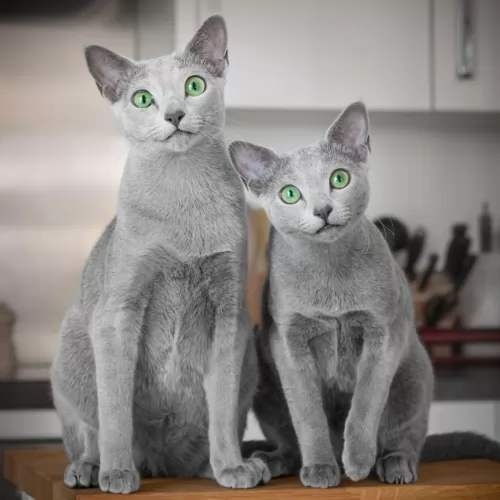 Part of caring for a cat as a responsible pet owner comes from feeding your pet. The Russian Blue is a cat that enjoys his food so you will have to look out for overfeeding.
Part of caring for a cat as a responsible pet owner comes from feeding your pet. The Russian Blue is a cat that enjoys his food so you will have to look out for overfeeding.
A cat that is overweight can start developing joint problems and diabetes. Rather stick to scheduled meals so that you can know exactly what your feline pet is getting. Such a beautiful cat needs the best food there is to keep the coat shiny and healthy and to prevent illness.
Always read the food labels to ensure the best ingredients and the right portion sizes. Make sure your cat gets food that is meat protein-rich as a cat is a carnivore.
Water is another important part of your Blue Russian’s diet. Fresh cool water should be available for your cat night and day. Water bowls are good but a water fountain is a tantalizingly attractive way for your pet to be attracted to drinking more water.
Make sure that you rake up all your cat’s droppings from the litter box every day as the Russian Blue is a hygienic cat and wants a clean litter box. Make sure the litter box is in a nice quiet spot for your cat.
The cat has a dense coat but isn’t a heavy shedder and requires very little grooming.
Ensure a decent bed for your Bombay cat. Any soft cat bedding will do, and while some cats like a simple flat mattress-type bedding arrangement, other cats like the idea of getting into a bed that provides some privacy.
You just have to find yourself a decent pet shop because when you do, you’ll find a host of soft, warm, fully washable blankets and pillows for your pet. Once you’ve decided on the right bed and a nice quiet spot, your cat will have a complex issue sorted out as some cats can be fussy with their sleeping arrangments.
Make sure your cat is neutered or spayed to avoid unwanted kittens. Neutering offers health benefits, reducing the risk of different cancers. Your cat also no longer has the desire to fight over mates and territory.
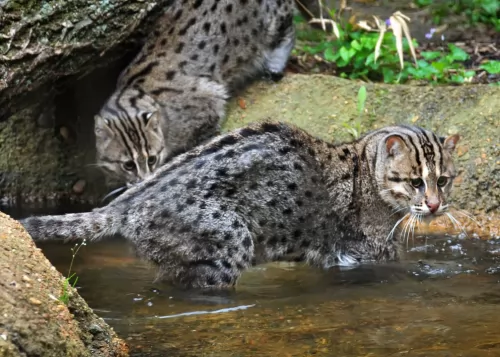 Most cat owners with basic cat care knowledge will be able to take care of their Machbagral. You could say that there is a little bit more specialized care with these hybrid cats as they will require an outside cage as they are cats with a wild side.
Most cat owners with basic cat care knowledge will be able to take care of their Machbagral. You could say that there is a little bit more specialized care with these hybrid cats as they will require an outside cage as they are cats with a wild side.
Feline hybrids are larger than domestic cats and can exhibit a wild temperament, so you have to bear in mind they require careful and different handling to a regular cat.
A diet of commercial pet food may not be sufficient for a hybrid such as the Machbagral and your vet may well be able to advise you on the feeding requirments of these hybrids.
Since cats are carnivorous, they will need to be fed food that is high in protein. You need to understand how to read labels on commercially manufactured cat foods and to avoid those that have more carbohydrates in them and less meat. Feeding you cat such a diet will ensure health issues later on.
Provide your pet with all the things needed to make him content as can be. Food and water bowls, paddling pool, toys, sleeping area. You want to surely invest in collar and tag as these cats often try to get away.
You want to make sure you have an outdoor enclosure for your Machbagral. These hybrids are indoor- and outdoor cats. Because they often don’t learn to use a litter box they need to be outside in an enclosure for some of the time. They are certainly not indoor cats.